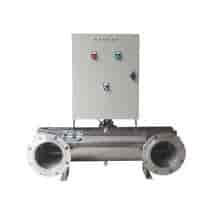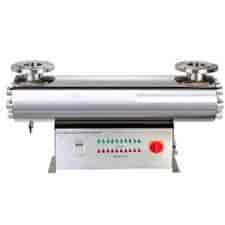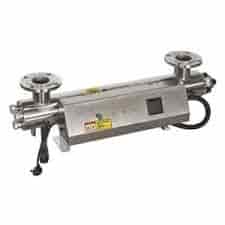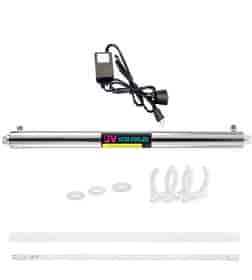Best 250 GPM UV Ultraviolet in Dubai Marina
Buy on whatsappDescription
250 GPM UV Ultraviolet in Dubai Marina
Water is a crucial component in our lives, and we need it for various purposes such as drinking, cooking, cleaning, and many more. However, not all water sources are safe and clean for human consumption. Water treatment systems have become essential to ensure that the water we use is free from contaminants that may cause harm to our health. One type of water treatment system that has gained popularity in recent years is the UV Ultraviolet filter. This article aims to provide a comprehensive understanding of UV Ultraviolet filters for water treatment systems.
What is a UV Ultraviolet filter?
A UV Ultraviolet filter is a type of water filtration system that uses UV radiation to kill or inactivate harmful microorganisms present in water. The UV radiation damages the DNA of microorganisms such as bacteria, viruses, and protozoa, preventing them from reproducing and rendering them harmless.
How does a UV Ultraviolet filter work?
A UV Ultraviolet filter consists of a lamp that emits UV radiation and a chamber that holds the water. The lamp is usually made of a quartz sleeve that protects the lamp from the water and allows the UV radiation to pass through to the water. When the water passes through the chamber, the microorganisms present in the water are exposed to the UV radiation, which damages their DNA and renders them harmless. The treated water is then safe for human consumption.
Advantages of UV Ultraviolet filters
1. Chemical-free water treatment
One of the significant advantages of UV Ultraviolet filters is that they do not use chemicals such as chlorine or iodine to treat water. Chemicals used in water treatment can leave behind harmful residues or by-products that may be harmful to human health. UV Ultraviolet filters, on the other hand, do not leave behind any residues or by-products, making them an ideal water treatment system for those who want chemical-free water.
2. Energy-efficient
UV Ultraviolet filters require very little energy to operate. The lamps used in UV Ultraviolet filters have a long lifespan, and they do not consume much electricity. This makes UV Ultraviolet filters an energy-efficient water treatment system.
3. Effective against a wide range of microorganisms
UV Ultraviolet filters are effective against a wide range of microorganisms, including bacteria, viruses, and protozoa. This makes them a versatile water treatment system that can be used in various applications, including residential, commercial, and industrial settings.
UV Ultraviolet filters for residential use
UV Ultraviolet filters are ideal for residential use, especially in areas where the water supply may be contaminated. A UV Ultraviolet filter can be installed at the point of entry to the house, treating all the water that enters the house. Alternatively, it can be installed at the point of use, treating only the water that is consumed or used for cooking.
UV Ultraviolet filters for commercial use
UV Ultraviolet filters are also used in various commercial settings such as restaurants, hotels, and hospitals. These filters can treat large volumes of water, making them ideal for commercial applications. UV Ultraviolet filters are also used in the food and beverage industry to ensure that the water used in food preparation and processing is safe and free from contaminants.
UV Ultraviolet filters for industrial use
UV Ultraviolet filters are used in various industrial applications such as pharmaceuticals, cosmetics, and electronics manufacturing. These filters are used to treat water that is used in the manufacturing process, ensuring that it is free from contaminants that may affect the quality of the final product.
Maintaining UV Ultraviolet filters
Maintaining a UV Ultraviolet filter is relatively easy. The lamp should be replaced periodically, usually every 12 months, to ensure that it is emitting enough UV radiation to treat the water effectively.
Choosing the right UV Ultraviolet filter
When choosing a UV Ultraviolet filter, it is essential to consider the flow rate of the filter. The flow rate is the rate at which the water flows through the filter. The flow rate of the filter should match the flow rate of the water supply to ensure that the filter can effectively treat the water.
It is also essential to consider the size of the filter. A UV Ultraviolet filter that is too small for the water supply will not be able to treat the water effectively. On the other hand, a filter that is too large for the water supply may consume more energy than necessary.
UV Ultraviolet filters vs. other water treatment systems
UV Ultraviolet filters are just one type of water treatment system. Other water treatment systems include reverse osmosis, activated carbon filters, and distillation. Each water treatment system has its advantages and disadvantages, and the choice of system depends on the specific needs and requirements.
Reverse osmosis
Reverse osmosis is a water treatment system that uses a membrane to remove contaminants from water. Reverse osmosis is effective in removing a wide range of contaminants, including bacteria, viruses, and dissolved minerals. However, reverse osmosis systems are often costly to install and maintain.
Activated carbon filters
Activated carbon filters are another type of water treatment system that uses activated carbon to remove contaminants from water. Activated carbon filters are effective in removing chlorine, sediment, and organic compounds. However, they may not be effective against bacteria and viruses.
Distillation
Distillation is a water treatment system that boils water and then condenses the steam to produce purified water. Distillation is effective in removing contaminants such as minerals, chemicals, and bacteria. However, distillation systems are often costly to install and operate.
Conclusion
UV Ultraviolet filters are an effective and energy-efficient water treatment system that can be used in various applications, including residential, commercial, and industrial settings. UV Ultraviolet filters are effective in removing a wide range of microorganisms, making them a versatile water treatment system. When choosing a UV Ultraviolet filter, it is essential to consider the flow rate and size of the filter to ensure that it can effectively treat the water. While UV Ultraviolet filters are just one type of water treatment system, they offer several advantages over other systems, including chemical-free water treatment and energy efficiency.
{finish}
FAQs
- Are UV Ultraviolet filters effective against all types of microorganisms?
UV Ultraviolet filters are effective against a wide range of microorganisms, including bacteria, viruses, and protozoa. However, they may not be effective against some types of parasites.
- Can UV Ultraviolet filters remove minerals from water?
No, UV Ultraviolet filters cannot remove minerals from water. They are effective in removing microorganisms from water.
- How often should the UV lamp be replaced in a UV Ultraviolet filter?
The UV lamp in a UV Ultraviolet filter should be replaced every 12 months to ensure that it is emitting enough UV radiation to treat the water effectively.
- Are UV Ultraviolet filters costly to operate?
No, UV Ultraviolet filters are energy-efficient and require very little energy to operate. The lamps used in UV Ultraviolet filters have a long lifespan and do not consume much electricity.
- Can UV Ultraviolet filters be used in the food and beverage industry?
Yes, UV Ultraviolet filters are used in the food and beverage industry to ensure that the water used in food preparation and processing is safe and free from contaminants.





